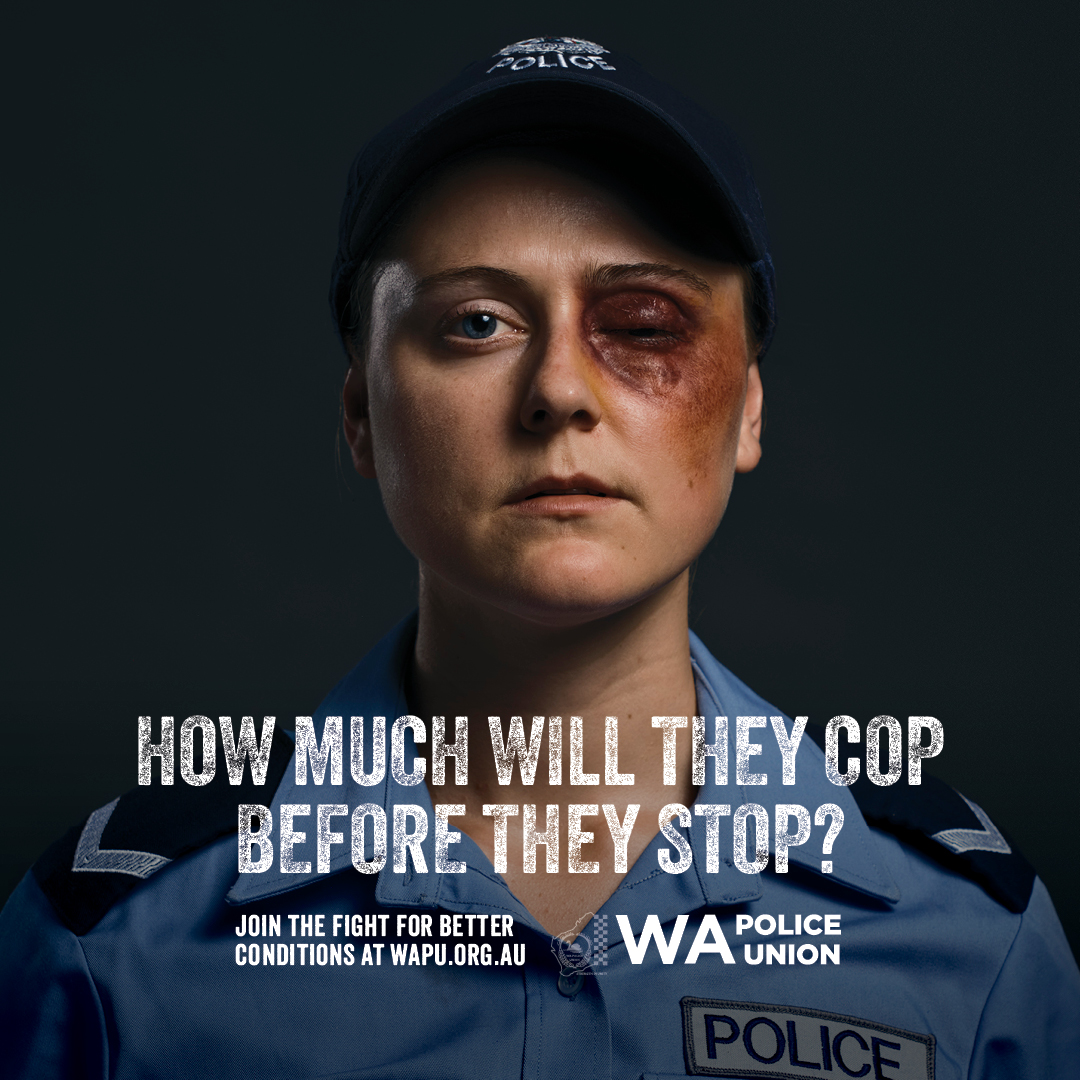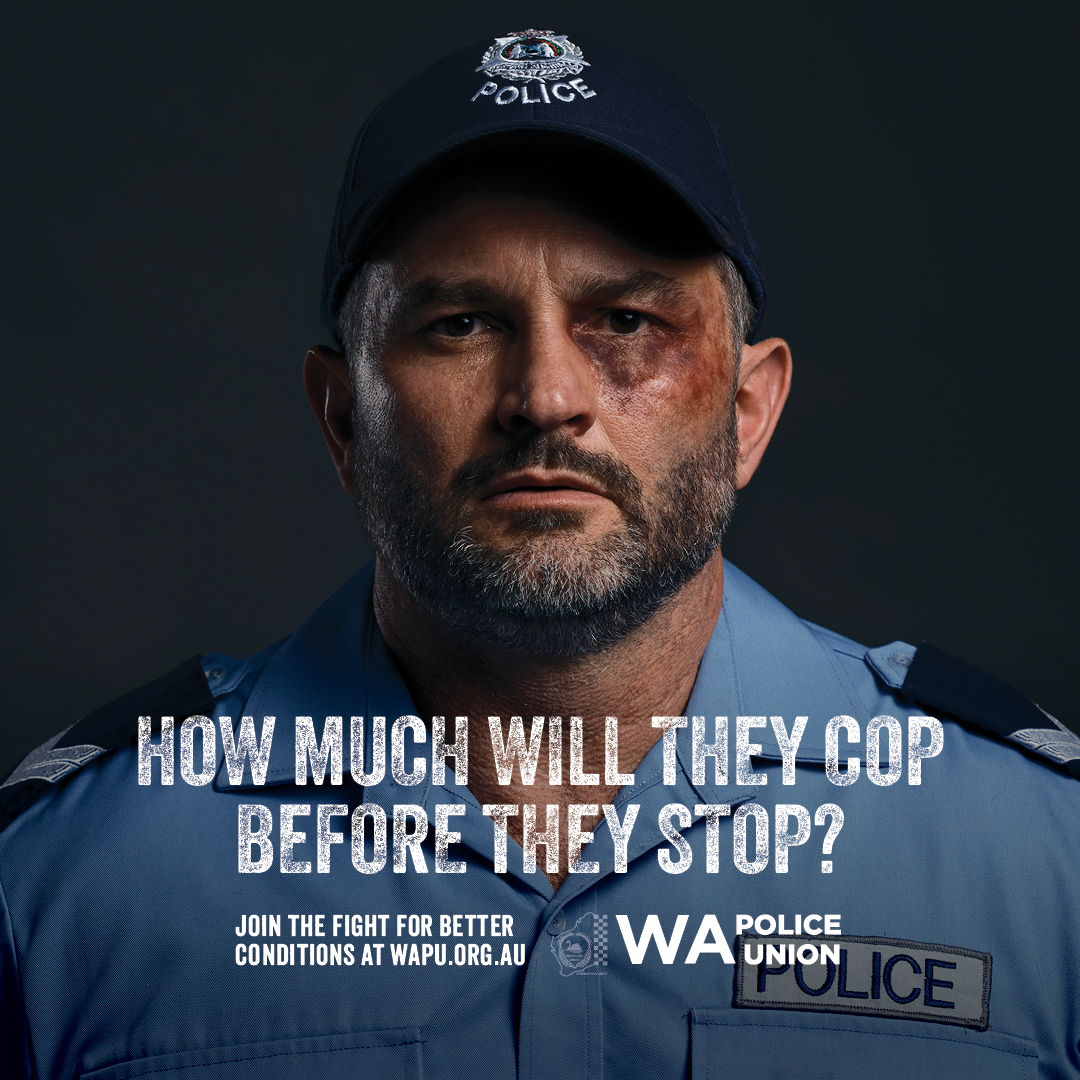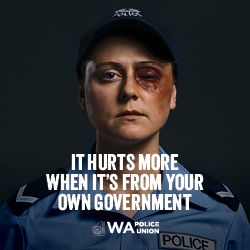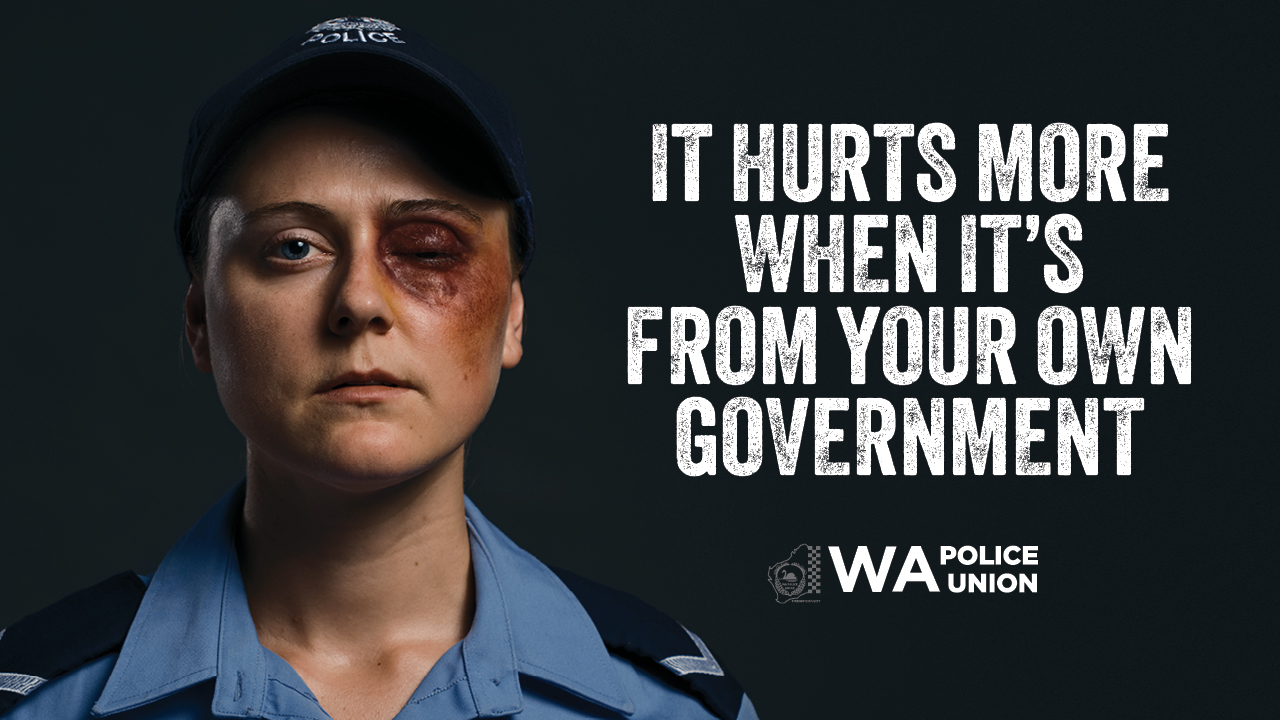What.
We cop enough
WA Police Union’s campaign, “We Cop Enough,” is aimed at advocating for improved working conditions for our Police Officers across the Western Australia.
Being a Police Officer is not a regular public service job. Every day, officers face a relentless barrage of challenges, from confronting criminals to navigating emotional strains within their own families. They endure long hours, shift work, and significant personal sacrifices to serve and protect our community.
The question we pose to the public is simple: “How much would you cop before you’ve had enough?”
It’s time to shed light on the realities of policing and demand better for those who selflessly dedicate themselves to keeping us safe. Despite serving in the world’s largest single police jurisdiction, our officers are stretched thin, facing understaffing, poor rostering practices, inadequate pay, and housing shortages in rural areas.
The recent government review approving a mere 3 percent wage increase across the public service fails to recognise the unique demands and sacrifices inherent in police work. Policing is not just a job; it’s a calling that requires unwavering dedication and support.
Through the “We Cop Enough” campaign, we aim to educate the public about the true nature of police work and advocate for meaningful change in working conditions. We are currently engaged in good faith negotiations with the State Government and the WA Police Force to secure a deal that prioritises the well-being and safety of our officers.
WA Police Union stands firm in our commitment to ensuring that our officers have the resources, support, and respect they deserve as they continue to serve our community with unwavering dedication.
How.
New Industrial Agreement.
Differentiating between Police Officers and public servants is the centrepiece item in the WA Police Union’s log of claims that sets out what its 6,500+ members, which make up approximately 96% of WA Police Officers, want included in their replacement industrial agreement.
SALARY
We are calling for an 8.5 per cent increase for the first year and 5 per cent increase for the second year of the Agreement.
Should the parties consider that a three-year agreement is advantageous, the Union will specify its claim for the third year, depending on progress of negotiations.
Police officers have suffered a cut to real wages over many years because of the previous Wages Policy. Recent CPI figures prevail the stark difference between wage outcomes and cost of living pressures that have affected officers.
With the recent decision of the Salaries and Allowances Tribunal to increase the salaries of senior public servants by up to 9.7%, the capacity of government to afford significant pay increases for police officers is evident for all to see.
SHIFT ALLOWANCES
We are also calling for urgent action to address the outdated framework governing shift allowances for police officers. Developed three decades ago, this framework no longer reflects the current landscape of non-standard working hours within the WA Police Force.
Over the past three decades, the prevalence of non-standard working hours, including increased weekend shifts across various work groups within the force, has significantly escalated. However, the compensation structure for these shifts has failed to keep pace with community standards, creating a pressing need for reform.
Moreover, as other public sector work groups receive more generous compensation for working unsociable and intrusive hours, the shift allowances provided to police officers appear inadequate by comparison.
By increasing shift allowances, we not only strive to address the existing inequities faced by police officers but also aim to incentivise officers to take on frontline positions in an ever-declining force. This would bolster the cadre of primary first responders available to promptly assist the community in times of need.
Recognising the detrimental impact that unsociable working hours can have on the health and well-being of officers and their families, we are proposing either a doubling of current rates or the implementation of a composite arrangement that ensures satisfactory compensation for such hours worked.
It is imperative that we act swiftly to rectify these disparities and support our police officers in fulfilling their duties while maintaining a healthy work-life balance.
MINIMUM STAFFING LEVELS
We are expressing grave concerns over the growing number of vacancies at police stations, with some stations being manned by only one or two officers. This severe understaffing is taking a toll on our members, leading to fatigue, burnout, and a concerning exodus from the force.
The current staffing shortages are placing immense pressure on our officers, who are struggling to cope with the lack of resources and support. As a result, many are forced to work longer hours under increasingly stressful conditions, jeopardising both their wellbeing and the effectiveness of policing services.
To address this crisis, one viable solution is to adopt a more refined approach to quantifying the workload of police officers. By analysing hours of work based on specific business unit activities, rather than relying solely on broader metrics like case file numbers, we can better understand the true demands placed on our officers.
Linking activities to costs provides a transparent connection between the cost of services and the allocation of resources. This approach offers a more rational basis for staffing decisions compared to traditional models such as officer to population ratio or officer to crime ratio.
Retention remains a persistent challenge for the Police Force, with high workloads cited as a significant factor driving members to leave the force. The inability to accurately measure workload exacerbates this issue, leaving officers feeling overwhelmed and undervalued.
It is imperative that immediate action is taken to address staffing vacancies and workload concerns within the Police Force. Failure to do so not only compromise the safety and well-being of our officers but also undermines the effectiveness of law enforcement efforts in our communities.
When.
Negotiations are under way.
The WA Police Union is engaged in good faith bargaining with the State Government and WA Police Force replace the expiring Western Australia Police Force Industrial Agreement 2022.
On 1 March 2024, we handed down the log of claims for the upcoming Police Officer Industrial Agreement 2024 to the Commissioner of Police.
WA Police Union are demanding better working conditions for our Police Officers who tirelessly serve our community day in day out.
WA Police Union is dedicated to advocating for the rights and wellbeing of police officers within the WA Police Force. With a commitment to adopting a safe and supportive working environment, we strive to ensure that officers receive the resources and recognition they deserve for their invaluable service to the community.







